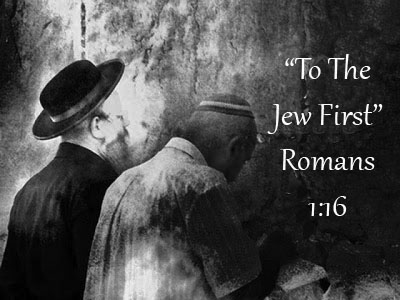Historical Issues for Jewish Unbelief in Yeshua (Part 1 of 3)
Throughout Israel’s history, her religious leaders developed a system of commentaries on the Scriptures that has come to be known as the Oral Law, or Talmud. Originally intended to keep the Jewish people from breaking God’s commandments, ironically and tragically, the Oral Law has prevented us from seeing God’s love and Messiah as found in the Scriptures.
While ministering in the Ukraine, a familiar question was asked of me, only this time in Russian, “If Jesus is the Jewish Messiah, and the prophecies in the Jewish Scriptures are as clear as you say they are, then why don’t our rabbis who study the Scriptures see this?” That is a good question. Actually, the prophecies predicted a partial blindness upon Israel in regard to recognizing our own Messiah (see Isaiah 53:1-7). But for a more complete answer, an overview of Jewish history will help.
There are three periods of Jewish history we need to consider:
- The Development of Oral Law (516 BC – AD 70)
- The Destruction of the 2nd Temple (AD 70 – AD 135)
- The Persecution of the Jewish people (AD 135- present)
1. The Development of Oral Law: 516 BC – 70 AD
In this first study, we will look at the Development of the Oral Law. When our people returned from Babylonian captivity, our leadership was devoted to prevent such a catastrophe from ever taking place again. The rabbis reasoned, “it was the holiness of the Law and our disobedience to it that resulted in the exile.” Thus the rabbis developed a system of buffers or “fences”: “The Oral Law,” providing additional rules for the people to keep which would “preserve the original commandments from trespass” (Talmud Aboth 1:1).
A Fence Around the Law
-The Traditions of the Elders
In the Schulchan Aruch, (“the code” of rabbinical Judaism for all ritual and legal questions) some of the fences regarding the issue of work on the Sabbath are seen:“He who spills any liquid in a place where the soil is apt to produce something is guilty of violating ‘the law against sowing’” (80:28). “It is forbidden to spit in a place where the wind will scatter the saliva” (i.e. plowing on the Sabbath, 80:30). “Mud on one’s garment may be scraped off with nail or with a knife if it be still moist, but if it be completely dry it may not be scraped off, for it is equivalent to the act of grinding”(80:38). “It is forbidden to shake off snow or dust from a black garment…” (80:39). “It is forbidden to carry a covering as a protection from the sun or from the rain, which is commonly known as an umbrella, because it is considered as making a tent” (80:82).
And there are many, many more like these, covering each area of personal, public, religious and vocational life. As mentioned, the intent of these ‘fences’ was to keep people from breaking God’s laws and coming under His wrath again. However, the result of the Oral Law was, and is today, that the people became in effect ‘insulated’ from the Scriptures. Hence, they never really fear God’s law, but deal primarily with the ‘traditions of the elders.’ The Jewish people can never truly understand God’s holiness or His love, because the same Law of God that expresses His holy standards and judgment also expresses His love and promises (Deut. 7:7-8; 18:1-22). More importantly, when Messiah came He was judged not by Scriptural standards, but by the Oral Law and the traditions of men.
Sabbath Breakers
In Matthew 12:1-2, the teachers of the Law confront Yeshua over His disciples picking the grain and eating it on the Sabbath. Though the Law of Moses clearly stated that it was legal to eat from a field or vineyard as you passed by, (Deut. 23:24-25) the Oral Law made this unlawful. When Yeshua’s disciples picked the heads of grain, the religious leaders ‘saw’ several transgressions committed:
- Harvesting — as the disciples picked the grain.
- Sifting — rubbing grain in their hands to separate the chaff.
- Winnowing — blowing the chaff away.
- Grinding — crushing the wheat to eat it.
Was this the interpretation God intended for the Sabbath laws? No, not any more than opening a ‘lunch bag’ to eat the food inside of it, which would have been considered ‘work’ by the rabbis. This is one example of how the rabbinical community, fearing the judgment of God upon Israel for ‘disobedience’, could be consumed with technicalities while displaying a lack of compassion toward a hungry neighbor. Messiah responded, “Have you not read what David did when he was hungry, and they that were with him; how he entered into the house of God, and ate the showbread, which it was not lawful for him to eat…?” (Matt. 12:3-4), as it is written, “I desire compassion, and not sacrifice” (Matt. 12:7, cf. Hosea 6:6). Even if the rabbis would not permit Messiah’s disciples to eat as David and his men had been allowed to do simply because they were hungry, they certainly should have permitted the disciples to eat out of compassion.
Lord of The Sabbath
“For the Son of Man is Lord of the Sabbath” (Matt. 12:8). As Lord of the Sabbath, Messiah had unquestionable authority which should have been respected but wasn’t because He was evaluated according to tradition rather than according to Scripture. He was judged by the traditions of men which, for 2000 years, have kept my people from seeing Yeshua for Who He really is. In Matthew 15:1-2, we see the rabbis again accusing the disciples of violating tradition, this time for the tradition of hand-washing: “Whoever eats bread without previously washing the hands is as though he had intercourse with a harlot” …“Whoever makes light of washing the hands (before and after a meal) will be uprooted from this world” and “Whoever eats bread without washing the hands is as though he eats unclean food” (Talmud Sotah 4b).
Sacred Offerings
Does this sound overly severe for failing to wash one’s hands? Here was another ‘fence’ intended to make sure that sacred offerings were eaten properly before a Holy God. But in Matthew 15 no sacred meal was involved, therefore it was a non-issue for Messiah, Who neither justified nor rebuked His disciples. Instead, Messiah takes the occasion to deal with how the traditions had become a substitute for Scripture, making people disobedient to the Word of God: “You hypocrites, well did Isaiah prophesy of you, saying, ‘This people draw nigh unto me with their mouth, and honor me with their lips; but their heart is far from me. But in vain they do worship me, teaching for doctrines the commandments of men’” (Matt.15:7-9). Thus the Teachers of the Law had become “blind guides of the blind” (v. 14), blinded by their traditions to the truth of Scripture, judging the very Lord of the Word by their own rules! And so it is still today. The fences remain, and without the Word of God, my people remain unable to see Him Who is the very Truth for their lives.
Next month we’ll continue our study with the second of three events in Jewish history that still hinder the Good News. Until then, Shalom.




Add Comment